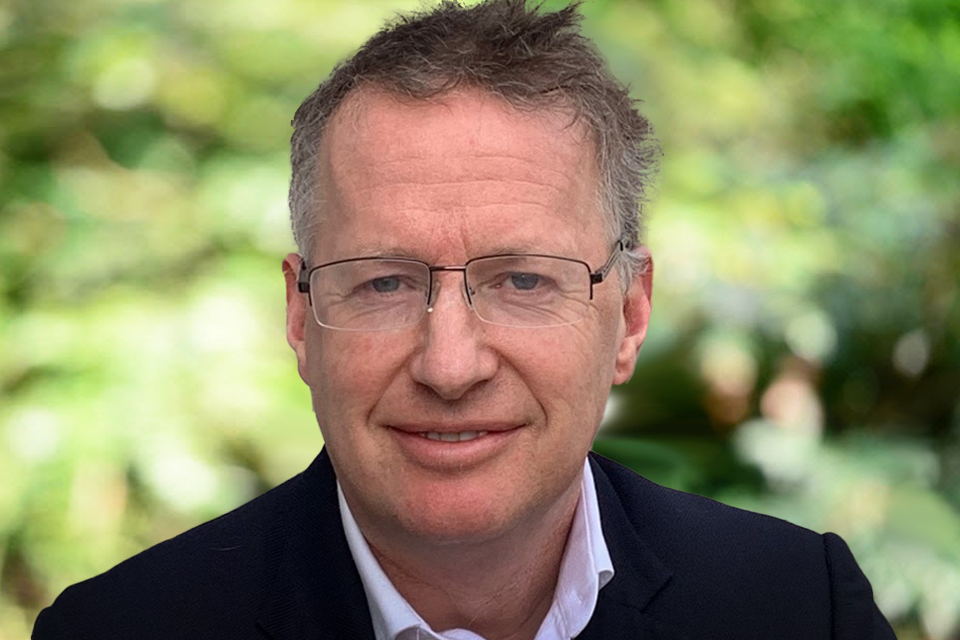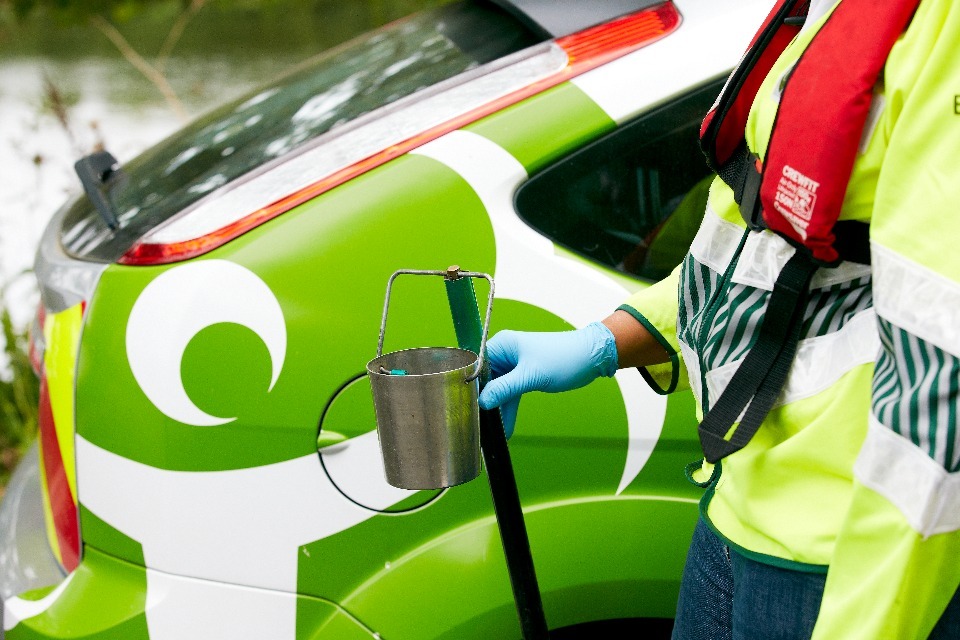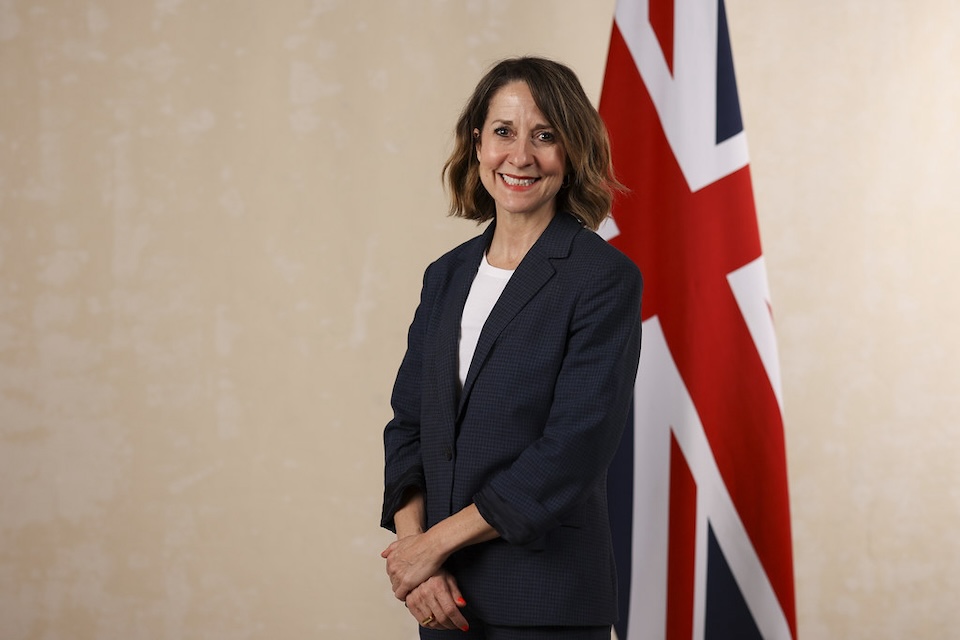Introduction
Good morning and welcome to the Charity Commission’s Annual Public Meeting.
I should start by acknowledging that, as the Charity Commission for England and Wales, our minds are with all those affected by the major storm over the weekend – in particular those in South Wales. I’m sure I speak for all of us in sending our best wishes to the communities impacted, and our admiration for the charitable efforts helping in practical ways alongside the emergency and statutory services.
Now, I’m delighted to welcome you to Kings Place, home of the Kings Place Music Foundation – a fantastic example of the role charities play in ensuring that the arts are accessible to people of all backgrounds.
As the first new concert hall to be built in London since the 1980s, it also stands as a testament to the vital contribution that philanthropy has to play in our society.
My exit
It feels especially suitable for me, this year, to hold our public meeting in a space that reflects the value of charity, as this will be my last such annual meeting as Chair, and I have celebrated the positive impact of charities in our society from the very start of my tenure.
In that respect, I have agreed with the new Secretary of State that I will hand on the baton to a successor at the end of my term in April next year. I wish my successor the very best, including that they are able to have the same constructive working relationships with successive ministers that I have enjoyed. All have respected the Commission’s statutory independence without equivocation, which I am sure will continue.
I will leave with great pride in what we at the Commission have achieved together over the past few years, and optimism for the future.
My beginning
Looking back, I was kindly appointed by Secretary of State Nadine Dorries, under the premiership of Boris Johnson, which dates me somewhat.
With 30 years previous experience in volunteer roles, I came into the position of Chair at that time with enthusiasm and respect for the charitable sector – and that that has only grown since.
Drawing on my background as a Chancery King’s Counsel, and on my previous experience as a Legal Member of the Board, I was determined to lead an expert Commission led by the law and the law alone in the exercise of our regulatory functions.
And to leave behind a Commission that is, in all that we do, fair, balanced and independent.
Together with my board, and the Commission’s dedicated staff, I believe that we are delivering on that ambition.
The Commission is, based on evidence both statistical and anecdotal, more trusted and respected by the sector we regulate than before.
And respect for us matters.
While the Commission has strong powers which we are unafraid to use, regulators have greatest impact, and are able to regulate most efficiently and economically, where they regulate by consent. Where the regulated community respects their regulator, and actively seeks out and actions the guidance of the regulatory body.
I believe that we have earnt the respect of those we work with not with any dramatic change of course, or any new ideological imperative, but by plainly aiming to fulfil our independent statutory functions with integrity and care, motivated by a proper application of the law alone.
Three guiding principles
I am pleased to say that those three key guiding principles of fairness, balance, and independence are not just lofty aims, but are baked into our new five year strategy, and evidenced in our work over recent years.
Fairness
Fairness is about ensuring that everyone who comes into contact with us is treated with respect and dignity and experiences a fair process – whether or not the outcome of that process is one they’d choose.
It’s one of the founding concepts of justice everywhere.
It is in the interests of fairness that we are working across our communications outputs to ensure they are straightforward and easy to understand, yet detailed enough so that those who come into contact with us are clear as to what to expect.
Similarly, this year, we have been reviewing our risk operating framework so definitions of the risks we consider are clearer, as is what we can and cannot do.
Our fair processes are reflected not just in our 2024 trustee survey results, where trustees overwhelmingly find us fair, and only 1% consider us unfair (proving that it is statistically impossible to please absolutely everyone), but also in our success in the tribunal, where our decisions are overwhelmingly upheld if appealed. As a lawyer myself, I particularly like that kind of success.
Balance
Balance means ensuring the pendulum between enforcement and support never swings too far in one direction.
Since 2022 we have demonstrated our willingness and appetite to use our powers without fear or favour. The use of our disqualification power has increased, and this year alone we have made a number of important disqualifications, where the legal test was met, to protect charity from harm.
Our work this year in holding to account wrongdoing at the Captain Tom Foundation, Fashion for Relief, and Burke’s Peerage and the Mahfouz Foundation show that fame, celebrity and connections are no protection against the law or our regulatory oversight.
We have also been rigorous in response to the impact of awful international events on our sector. We have not only moved robustly against the charities of individuals sanctioned as a result of the terrible Ukrainian invasion by Russia, but also against perpetrators of concerning activities linked to the ongoing conflict in Israel and Gaza including Anti-Semitic and hate speech since the awful Hamas terrorist attacks of last October.
In this context we have opened over 200 regulatory cases relating to the conflict in the Middle East since then, involving charities with different views on the conflict, and made over 40 referrals to the police where we considered that a criminal offence might have been committed. We are clear that charities must never become vehicles for hate, and we have robustly enforced that position.
We continue to hold the Islamic Centre of England to account for serious concerns about its governance and activity in a statutory inquiry – including an event at its premises where Iranian General Soleimani was eulogised. He was designated as a terrorist at the time of his death.
Indeed, I am pleased that we have generally been unafraid to use the statutory inquiry as a means of robust regulation in my time – numbers of such inquiries have increased substantially from 49 in the year 2021-22, up to 72 in the year 2022-23, and 89 in 2023-24. So far, since April this year, we have already opened 40 such inquiries, including into Eldonian Community Trust Limited in Liverpool, and the Christian Barnabas Fund. These inquiries remain ongoing.
On the supportive side, I am pleased that we’ve used our legal expertise to make important new additions to our library of guidance for trustees.
Over the past few years, we have published important guidance enabling ethical investments, helping charities navigate the treacherous risks (but promising returns) of social media, and also the no less treacherous waters of political campaigning, and indeed the awful cost of living crisis.
During this Charity Fraud Awareness Week, we’ll be adding to our refreshed trustee guidance with an update guide on fraud and cyber security, produced with support from the National Cyber Security Centre – look out for that coming later this week.
We have also enabled charities to evolve their services and their ways of working, through our regulatory permissions work. Over the last year, we received more than 12,000 requests for changes, 8,000 of which required our formal permission and were actively handled by our team.
This may sound rather bureaucratic, but in December last year our regulatory authority and legal teams worked together to approve emergency orders within 24 hours that enabled four air ambulance charities to keep a vital supplier in business – and the ambulance in the air.
In that case, the trustees have told us that the emergency order enabled them to fly 12 patients to trauma centres in the 72-hour period after it was issued. So truly life-saving stuff. As was our recent work in helping put together a rescue for Zoe’s Place charity in Liverpool.
And the support we offer is not just about publishing guidance and considering governance permissions, it’s also about speaking out on behalf of charities where our voice can make a difference.
In this respect, since last year, we have been increasingly using our voice and convening power to hold banks to account for their often poor service to charities, and we continue to work with the financial services sector to help ensure that all charities have access to adequate banking services, with some signs of progress.
Sometimes in a challenging case, as with Mermaids’ recently, the right regulatory approach has to be an intelligent balance of support and enforcement. Here we were publicly clear as to where they had got it wrong, and where they hadn’t – and used the opportunity to make it clear that we expected charities in this sensitive area to pay due regard to the conclusions of the authoritative Cass Review, including the involvement of parents in any proposed social transitioning of children, and take account of any future NHS guidance.
Overall, on balance, an impressive 92% of trustees surveyed in 2024 believed that we had the right regulatory approach when wrongdoing and harm are brought to our attention, which is statistic we can be proud of.
Independence
In delivering on our promise to be independent, the Commission has ensured that while we listen to many, we are not beholden to anyone, no matter how powerful.
By way of example only, last year we were clear in supporting the right of the charity Care4Calais to sue the previous government over its Rwanda return policy. That was not popular in some quarters – but it’s what integrity, and the law, required.
Similarly, earlier this year, alongside Gus O’Donnell, I spoke out to highlight the value provided by charity think tanks of all perspectives to the development of policy in our democracy, against critics who would silence them for ideological reasons, as well as speaking out in favour of the work of our international aid charities against their own ideological critics.
Again, although unpopular with some, both positions were driven by an appreciation that such charities were lawfully acting in accordance with their purposes, and being unfairly criticised, so their missions needed to be publicly supported. This is something that I promised my Select Committee hearing back in April 2022 that I would do, where appropriate.
Overall, I am pleased that polling this year showed that both the public and trustees considered that the independent application of charity law remains our greatest driver, and I trust that will continue to be the case under my successor.
Themes close to my heart
I hope I’ve offered you some examples of our work to deliver on my aim of leading a Commission that is fair, balanced and independent.
Beyond that, I’ve dedicated much of my time as Chair to three themes that are close to my heart.
Political campaigning
First, as is well-known, I’ve spoken much over the past three years about charities and political campaigning.
As I knew from my previous stint on the Board of the Commission, this has long been a divisive issue, with disparate voices from within and beyond the sector pushing for shifts in the Commission’s approach in one direction or other, neither of which were based on the law.
I saw that a lot of this was driven by unfounded anxieties that somehow the right of charities to campaign politically was being unfairly curtailed by the Commission, or, conversely, that the Commission was failing to apply any limits to such campaigning.
I have therefore ensured that the Commission has been consistent and clear in a balanced message that the law is plain that charities may engage in political campaigning in furtherance of their purposes, and the law also sets clear limits on such campaigning, which the Commission would enforce.
I’m delighted that the evidence from our casework during the most recent General Election suggests that charities are increasingly getting this right, and I believe our clear and succinct messaging has played no small role in this welcome development.
And I’m pleased to notice that much of the moral panic on charities and campaigning has subsided. There appears a broader consensus that charities can speak out strongly and with passion, as long as charity law is observed.
And also a consensus that charities can and should model a better kind of discourse. This is a public discourse that avoids the abuse and extremism that we often see in party politics, but instead is marked by kindness, respect and an understanding that in a pluralistic society, we can disagree and nonetheless remain in dialogue.
Philanthropy
I’ve also made it a mission to encourage a new age of philanthropic giving in our country.
I was honoured to deliver the Dame Stephanie Shirley lecture at University of Kent last year, where the case was made for the highest earners in our country to give more than they currently do, and be recognised more positively when they do. And I have not stopped banging the drum on this important subject ever since.
In addition to this advocacy to celebrate philanthropy and philanthropists, this past year the Commission has also published key new guidance on accepting, refusing and returning donations, which reminds trustees that they need to start from a legal position of accepting donations, or otherwise they may cause their charity loss. Importantly, the guidance acknowledges that, in exceptional circumstances, a charity may face a difficult decision as whether to refuse or return a donation. The guidance is designed to help trustees have informed discussions when faced with that sort of choice, that has potentially significant consequences, and has been overwhelmingly welcomed in the sector.
I was also delighted to persuade Rory Brooks, a distinguished philanthropist himself, to join our Board last year to lead this work on the Commission’s behalf, which he has done with great energy, enthusiasm and skill.
Rory is ensuring that we are sharing our treasure trove of data to help push this forward, as well as acting as a convenor for major figures across Whitehall, the sector, and business to forward our common objectives.
Although there is much work to do, especially on corporate giving, I look ahead with optimism to 2025 and beyond. Philanthropy is much more of a positive buzzword now – and support from successive Governments on this issue means that philanthropy’s important role in our society’s success is increasingly more acknowledged, and less ignored. Further, Their Majesties our new King and Queen are conspicuous in their efforts in this area.
International Aid
Finally, I also made it a mission to demonstrate the Commission’s support and admiration for the work of our overseas aid charities.
Before rejoining the Commission as Chair, I felt that their important work, especially in disaster zones, was sometimes being unfairly undermined by what appeared to be an ideologically-driven aversion among some to the work of international development organisations.
Accordingly since rejoining, I have gone out of my way – quite literally, all the way to the Ukraine border, accompanied by a journalist – to signal my support for the many international aid charities on our register, who do great work to promote universal values of kindness and compassion around the world.
Chairs and Trustees
As I have said on many occasions, volunteer Chairs and Trustees of charities are the regulatory backbone of our remarkable charity eco-system, and it would be wrong of me not to remind the world of that again now. You all do an amazing job, and I hope that the Commission has supported you sufficiently under my Chairship, and will continue to do so. It is not always an easy gig doing these key roles, but it is an immensely rewarding one in terms of personal happiness and fulfilment, as our recent surveys have confirmed. So I encourage others, of all skills and backgrounds, to make sacrifices to step up to the plate, as our existing trustees have done.
Board and staff
In terms of people, I’m proud that, as well as Rory Brooks, and the excellent Shrenik Davda (who you will hear from shortly) we have assembled a stellar Board over the past few years, including Ann Phillips bringing profound charity law expertise, Mark Simm’s outstanding sector experience, Pippa Britton expanding our Welsh knowledge immeasurably, and Will Lifford and Jo Prowse adding accountancy and CEO experience respectively. The role of the Department of Culture, Media and Sport in actually making these appointments with my involvement, and in myriad other ways to assist the Commission’s governance, is important to acknowledge here, so a big thank you to them.
Together, this Board – whose diverse skills and background have been commended by our own external governance review – has not only steered the Commission ship well, but also I believe managed to get one of our biggest decisions definitely right, namely the choice of David Holdsworth to succeed Dame Helen Stephenson this year. I loved working with Helen – she was a legend, and a hard act to follow – but in David we have found a worthy successor, who has hit the ground running. A proper regulator, as the sector describes him.
Helping our CEOs are the Commission’s valiant staff, spread across Liverpool, London, Taunton and Newport, a collection of a modest 400 or so experts, who painstakingly regulate a vast £94bn sector, with expertise, kindness and humour.
I want to thank them all for helping in very many different ways in my time as Chair, and enabling me to bequeath a good regulatory legacy for my successor.
Trust in the sector is now at a ten year high, and on an upward trajectory, with the Commission thus fulfilling our statutory objective to increase trust in the sector. The Commission itself is a global leader in charity regulation, with an authoritative regulatory voice, acting without fear or favour to Government, media and sector alike. I look forward to seeing my successor build on that.
Conclusion
After 7.5 years spent now on the Board of the Commission in three terms on and off since 2013, including 3 years as Chair, it will indeed probably be time for me to finish this period of public service in April, and go back to the private sector. I’d like to end this long stint, and indeed this long speech, with praise of our wonderful charities, where I began as Chair.
In my inaugural speech, I said that charities are the outpourings of a thousand acts of kindness, compassion, and above all, love every day.
As many of you know, I have travelled the country extensively over the past three years visiting innumerable charities of all types and sizes, from a pet charity in Newcastle to a homeless charity in Cardiff, from a football charity in Manchester to a surfing charity in Cornwall, and many many others, getting an important granular feel for the pulse of the sector.
Every single time I saw the same energised glow of kindness, compassion and love in the eyes of the charity trustees, volunteers and staff as they explained to me their own charity’s unique and splendid purposes.
It has been a complete joy and a privilege to witness at close quarters that kindness, that compassion, and that love – and long, long may it continue.
Thank you.








